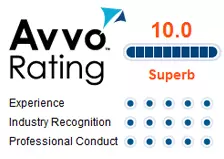The Bulls-coming from NM
Later this year, the foundational requirements for the admission of breath and blood test results in drunk driving cases could be significantly relaxed. This is because on March 2, 2011, oral arguments are scheduled to take place in the case of Bullcoming vs. New Mexico.[i] Since nearly all drunk driving cases involved either breath or blood test evidence, the ruling on this case will be among the most important DUI decisions in at least a decade.
The facts of this case involved the admission of a blood test laboratory report from a blood test performed on Donald Bullcoming of New Mexico. Based in part on this report, Mr. Bullcoming was convicted of felony aggravated DWI/DUI. He was sentenced to two years in prison. At the trial court level Bullcoming unsuccessfully argued that the laboratory report of his blood draw results was testimonial evidence subject to the Confrontation Clause.
The New Mexico Court of Appeals affirmed the conviction, and upheld the trial court’s ruling that the forensic report was a business record. The court ruled that a blood alcohol report is admissible as a public record and that it presented no issue under the Confrontation Clause because the report was non- testimonial.
The New Mexico Supreme Court granted discretionary review, but while the case was pending, this U.S. Supreme Court issued its 2009 decision in Melendez-Diaz v.Massachusetts, clarifying that forensic laboratory reports are testimonial and therefore that the Sixth Amendment does not permit the prosecution to prove its case via ex parte out-of-court affidavits. In applying the Melendez-Diaz ruling, the New Mexico Supreme Court held that the blood alcohol report was testimonial evidence, but it was admissible even though the forensic analyst who performed the test did not testify.
The issue presented in this case is profound: does the admission of a blood-alcohol test based on the in-court testimony of a supervisor or other person who did not perform or observe the laboratory analysis violate a criminal defendant’s Sixth Amendment rights under the Confrontation Clause?
Although it seems clear that because of Melendez-Diaz the use of such “ex parte examinations as evidence against the accused”[ii] should no longer take place in DUI prosecutions. Nevertheless, many courts have played fast and loose with the foundational requirements for test results in drunk driving cases, often finding that breath test logs and laboratory reports are admissible as non-testimonial business records. This is in fact the argument accepted by the New Mexico Supreme Court in Bullcoming when ruling in favor of admission.
This is a hotly contested case, and the NCDD/NACDL filed an excellent amicus brief setting forth the many reasons that gas chromatography can yield incorrect results, and why due process requires that the lab analysist provide live testimony. The brief, which can be downloaded at the Scotusblog[iii], indicates as follows:
How an analyst can make errors during the GC test that would be unknown by a surrogate analyst at trial, any of which may fall into the following four categories:
1. Step One: Preparation Of The Sample
2. Step Two: Loading The Machine
3. Step Three: Selecting The Test Parameters
4. Step Four: Interpretation Of The Results
The brief goes on to describe each of these categories in detail, then continues with an explanation as to why a proper cross-examination would include questions that only an actual analyst could answer.
The state’s position in this case is essentially that toxicology reports are business records, and as such are sufficiently reliable to warrant admission without the testimony of the testing analyst. While this argument is made in different ways to perhaps appeal specifically to the various sensibilities of the various Justices, the state nevertheless advocates that the Ohio vs. Davis[iv] rule is the appropriate one to apply in these instances.
It is hoped that the Supreme Court will further explain how the Confrontation Clause applies to laboratory reports, specifically in drunk driving case. If Crawford was chapter one, and Melendez-Diaz chapter two, perhaps Bullcommings will be Justice Scalia’s chapter three in his “book” on the history of this important limitation on government.
Get a FREE confidential CASE EVALUATION on your Michigan OWI/OWVI/DUI by calling (248) 306-9159, or filling out this consultation request form. Call now, there’s no obligation!
[i] Docket No.: 09-10876
[ii] Id. at 50
[iii] http://www.scotusblog.com/case-files/cases/abuelhawa-v-united-states/bullcoming-v-new-mexico/
[iv] Ohio v. Roberts, 448 U.S. 56 (1980).
Related posts:
- Thousands of Breath Tests Improperly Admitted in Michigan DUI Trials
- Blood Tests in DUI Cases Not Always Accurate
- Blood Tests in Michigan Drunk Driving Part of 20 Billion Dollar Industry
- Lack of Witnesses Makes Breath Tests Inadmissible
- Michigan’s Use of Expired Blood Draw Kits in DUI Cases Should Be Discouraged




{ 1 trackback }